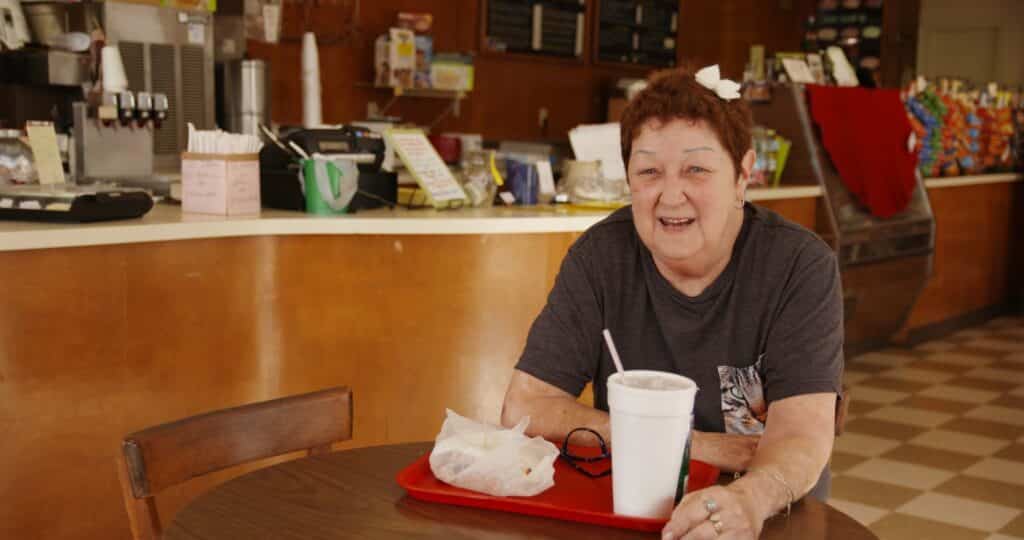Read also:
How to Watch FX Live Without CableHow To Watch AMC Without CableHow to Watch ABC Without CableHow to Watch Paramount Network Without CableFX’s new documentary compellingly charts Norma McCorvey’s journey from pro-choice activist to paid pro-life figurehead.
Nick Sweeney’s engrossing AKA Jane Roe: The Real Woman Behind Roe v. Wade begins uncomfortably close to its subject, the grinding rattle of her lungs clearly audible before her tired face swims into focus. Norma McCorvey is dying, and she knows it. “This is my deathbed confession,” she says to the camera, her painted eyebrows slightly raised.
McCorvey is also known by a more controversial name: Jane Roe. She is the Roe in the landmark Roe v. Wade decision who, after years of pro-choice activism, became a born-again Christian and figurehead for the pro-life movement.
Sweeney’s film includes both archival footage and interviews with McCorvey, who passed away in 2017, as well as activists on both sides of the abortion debate, such as Gloria Allred, Charlotte Taft, Flip Benham and Rob Schenck. McCorvey herself makes for a compelling, mercurial subject, an openly bisexual and rough-around-the-edges coarse talker who could quote Macbeth from memory.
Born into poverty and raised by an indifferent mother, Norma McCorvey has none of the polish that the key players on both sides of the abortion debate embody, which made her such a compelling plaintiff in the Roe v. Wade case.

She was the everywoman abortion case that advocates needed at the time—a poor laborer who couldn’t afford to travel out of state to terminate a pregnancy that was supposedly the product of rape (a point that McCorvey later recanted). McCorvey bristled against the role the pro-choice movement had assigned to her, wanting to be more than just a symbol of downtrodden hard luck. “If you’re nice and quiet, nobody pays you any attention,” she tells Sweeney. “And I love attention.”
This desire was one that others would later be too happy to exploit. When she reversed her position on abortion after joining up with Flip Benham’s pro-life organization Operation Rescue (now rebranded Operation Save America) it was a blow for pro-choice advocates like Allred, who’d worked against the grain of the movement to put McCorvey in front of the cameras. “It’s hard for me to imagine how she came to terms with…I don’t know, betrayal.” Charlotte Taft says. “It’s a betrayal, what she did.”
No one felt that betrayal more than Connie Gonzales, McCorvey’s partner of over twenty-five years. If there is a tragedy to be found in Aka Jane Roe, it is here. When McCorvey became a spokesperson for Operation Rescue, it was made clear that her “lifestyle” wouldn’t be accepted or understood by the pro-life movement. Pastor Flip Benham openly admits that he pressured McCorvey to end the relationship. While the two women continued living together for another ten years, the fundamental nature of their relationship changed from long-term lovers to roommates almost overnight.
In old interviews, you can see Gonzales struggling to come to terms with this change in circumstance. “The love is still there, it’s just that the sex is not. I don’t think there’s nothing wrong with either one of us, it’s just that we choose to be that way,” Connie says in a shaking voice. “Norma chooses to be that way.” The weight of that emphasis is broadcast through the resigned slump of her shoulders, the way her eyes never meet the camera. (As for McCorvey, it’s difficult to tell if she regretted her eventual desertion of Gonzales, who passed away in 2015.)
McCorvey herself makes for a compelling, mercurial subject, an openly bisexual and rough-around-the-edges coarse talker who could quote Macbeth from memory.
What made McCorvey’s change of heart and her abandonment of Gonzales so gutting was that it was all based on a lie. While her belief in Christianity seems genuine, her take on abortion amounts to nothing so much as a verbal shrug. “If a woman wants to have an abortion, it’s no skin off my ass.”
Circling back to her deathbed confession, she admits that the exploitation between herself and Operation Rescue was a two-way street. “I took their money and they put me out in front of the camera and told me what to say, and that’s what I’d say,” she says matter-of-factly. There’s even a touch of pride in her voice. When this clip is played for the other interviewees, both sides react with the same stunned “wow.”
Schenck, a prominent figure in the early days of the pro-life movement, confirms McCorvey’s deathbed bombshell. “There were moments I would look at her and wonder, ‘Is she playing us? … Because I know we’re playing her’.”
Taft, visibly shaken by these revelations, says “it just hurts because…the stakes. It’s just really big stakes.” And it is, with abortion still dividing the country and a supreme court one vote away from reversing Roe v. Wade, the stakes are now bigger than ever.
One can’t help but wonder what McCorvey—who passed away in 2017—would make of the blowback this confession will have on both sides of the debate, and how Jane Roe will be remembered. AKA Jane Roe might not be the empowering feminist screed or the self-satisfied rebuke of reproductive rights viewers may be expecting. But it’s a fascinating look at an imperfect figurehead, a firebrand who played (and was played by) both sides of a volatile issue.
AKA Jane Roe premieres Friday May 22 on FX.